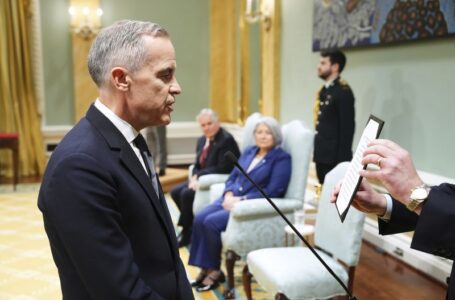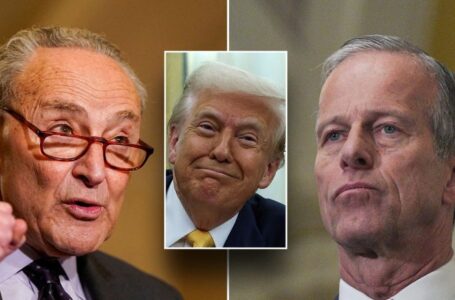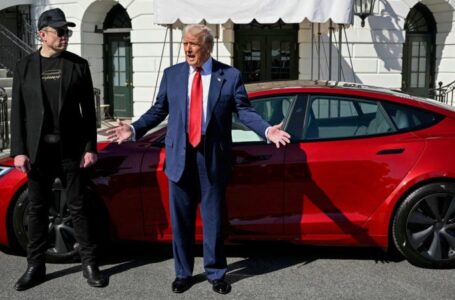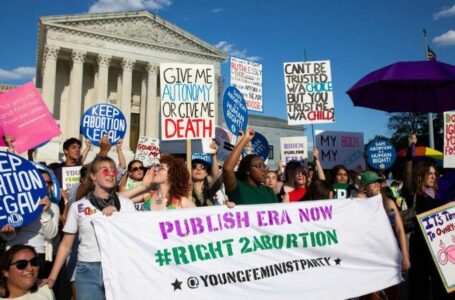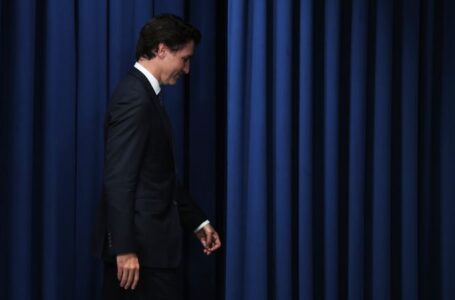Mark Carney sworn in as Canada’s PM after Trudeau steps down
What might happen after another inauguration of Donald Trump
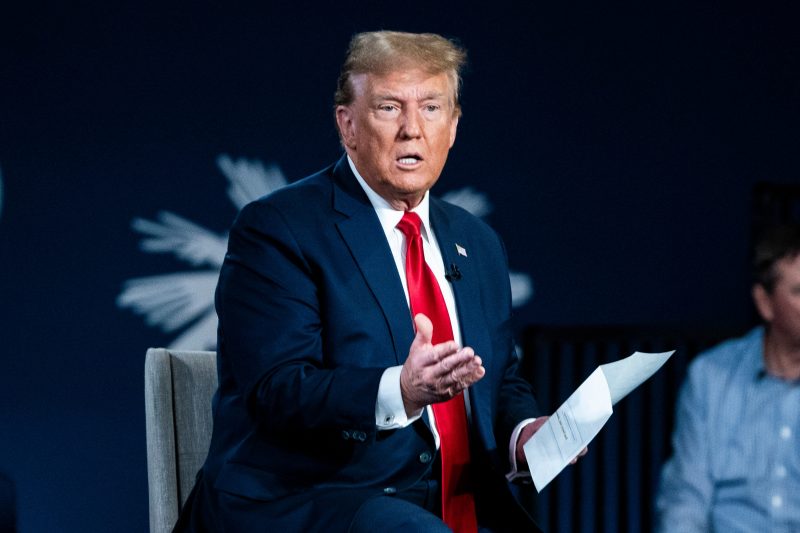

As a general rule, Donald Trump’s articulated plans for his presidency are nebulous. This is partly tactical; he has in the past suggested that offering specifics ties his hands in ways he doesn’t like. It is also partly because he hasn’t really appeared to pay that much attention to the specifics of the job. His presidency was, in essence, things that happened, some at his initiation, which he later retrofitted into a narrative of success.
During a conversation Tuesday with Fox News host Laura Ingraham, Trump was asked what the first thing is that he would do to address the border, should he be inaugurated in January 2025.
“There are two things I’m going to do,” Trump replied. “Number one is drill, baby drill. And the other thing — equal, equal — is we’re going to — look, I had the safest border in the history of our country. Recorded history, because I can’t tell you about 1,000 years ago, but recorded history of the border by far.” And then he offered up a pastiche of things he did that were cobbled into a narrative of success. Plus an aside about President Biden in a bathing suit.
Even this two-part plan is just patter. In December, Trump appeared on Fox News for a similar conversation with Sean Hannity. During that discussion, Trump had focused on energy production and the border as things he’d do should he win reelection so, when Hannity asked if he intended to be a dictator, Trump replied that he wouldn’t be — at least not for long.
He wouldn’t be a dictator “other than Day 1,” Trump said. “We’re closing the border. And we’re drilling, drilling, drilling. After that I’m not a dictator, okay?”
So this is now his line: On Day 1, he’ll expand oil production and close the border. Ingraham asks what he’s going to do when he takes office, he says expand oil production and close the border (even though Ingraham asked solely about the border).
Americans would be justified in wondering, then, what Trump actually would do if he is returned to office, beyond just the applause lines he’s throwing out on Fox News. And for the answer to that, we have to look at the machinations and rhetoric of his allies, the people who, during his presidency, ended up conceiving and implementing those various things that became part of Trump’s narrative of success.
On Wednesday, The Washington Post explored one specific policy area where these plans are more robustly fleshed out: immigration. From that report:
It’s important to note that Trump pointed to the same deportation effort when he was running in 2015. When he was president, he didn’t implement it. This, again, is the central question about a second Trump term: Would his increased confidence and broader familiarity with the levers of power mean he’d be more likely to act on his most extreme impulses? Or is this just stuff he says until he’s in the White House at which point he does a few sporadic things during the week before going golfing on the weekend?
One expected difference is that there would be more people agitating for specific sporadic things, Miller among them. Whether Trump is engaged in implementing his promises is one thing. But he would presumably arrive in the White House with a coterie of people eager to act quickly on his behalf.
That makes the various external articulations of policy platforms more important to consider. Trump’s team has his scattershot presentation of what he hopes to do if reelected, a plan it calls “Agenda47.” (The campaign’s Agenda47 website is mostly videos of Trump riffing on stuff.) Then there’s the agenda compiled by the Trump-allied America First Policy Institute. The Heritage Foundation, meanwhile, already has 900 pages of proposals it calls “Project 2025.” Combined, it’s a lengthy buffet of hard-right possibilities. What’s actually done will probably depend on who’s given a plate.
Politico this week explored one subset of possible Trump actions, those centered on protecting and elevating right-wing Christian politics and Christian nationalism.
The article notes that Trump pledged to “create a new federal task force on fighting anti-Christian bias to be led by a fully reformed Department of Justice that’s fair and equitable” during a campaign stop in Iowa last December. This is revealing, given that it is a specific, informed articulation of a promise he made in January 2016. Then he said that, if he won, “Christianity will have power. If I’m there, you’re going to have plenty of power, you don’t need anybody else.”
So what might a focused, familiar Trump do to bolster this worldview? Politico’s Alexander Ward and Heidi Przybyla point to Heritage’s proposals:
There are numerous other things that Trump has presented as priorities on the campaign trail. There’s no reason to doubt that he would actively try to erase protections given to civil servants so that he might install people throughout the federal bureaucracy who share his policy priorities. In a sense, this is a microcosm of his broader goal: to win the White House and then pepper leadership with people generally pointing in the same direction as him. Like those leaders, the MAGA-aligned bureaucrats could then dig into their pet causes and interests.
You’ll notice that much of what’s articulated above depends on ideological allies, as is always the case with a presidency. Repealing policies often means passing legislation or it means having allies in the judiciary. Trump’s second term in office would be aided enormously by his three first-term Supreme Court appointees, for example. Any efforts to effect change through executive orders, for example, would be bolstered by the conservative majority on the nation’s highest court.
On foreign policy, Trump could act largely unilaterally. International leaders would probably revert to a form of statesmanship centered on flattering the president. European members of NATO are already making contingency plans for their continental defense. The Mexican government is already wary of Trump’s insistence that he might use force to combat drug cartels in its country.
Where Trump could act with force and without external constraint, he would probably try to do so. His lamentations about not deploying the military in response to protests almost certainly means that he will use this issue as a litmus test when staffing his administration, reducing friction should he later decide to do so. He’d look for an attorney general who doesn’t have any qualms about ginning up probes of his enemies, someone much more like William P. Barr than Jeffrey B. Sessions III. In his first term, he made obvious his willingness to issue pardons based on his political allegiances; that would unquestionably continue.
Trump has already fostered a political environment in which fringe-right voices and ideas are provided with oxygen. That there are these competing plans for a second Trump term reflects the space that Trump has created for those plans to exist, confidence in his chances and the eagerness of right-wing actors to be granted the power to move forward. What Trump might do in a second term in office will depend on what he chooses to do with his constrained executive power and much more broadly on who he brings with him.
He’s talked about extreme actions before. This time, though, he might better empower extreme actors to effect them.
This article originally indicated that the America First Policy Institute was associated with Stephen Miller. He is president of America First Legal.

